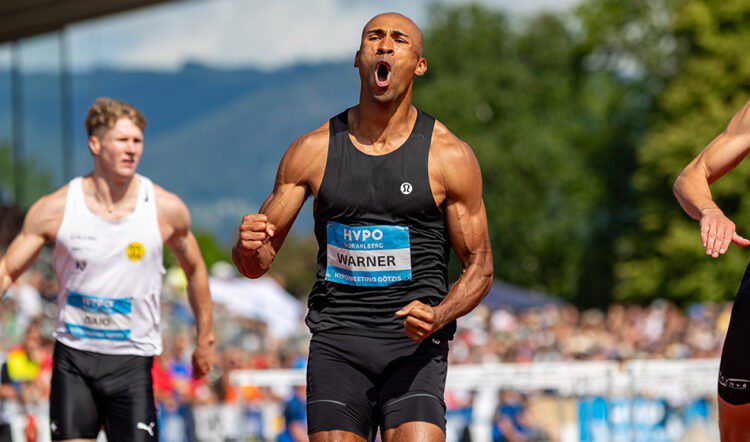As it prepares to celebrate its 50th anniversary, Gabriella Pieraccini looks at the rich history of the Götzis Hypomeeting in Austria
“A good old-fashioned wallow in nostalgia,” my editor mused, as we pondered how best to set the scene for the 50th anniversary of the Götzis Hypomeeting at the end of May. “The roll of honour. Some pointers on how influential it’s been through the years. Can you do 1500 words?” Some writing and gorgeous wallowing on 100 days of world-class athletics? Count me in.
Celebrating the history
Götzis is, without doubt, the finest track and field meeting anywhere in the world. The pages of this, and many other, athletics publications are rich with gushing praise of the gold standard set year after year by the organisers. The fan experience, the athlete experience, the media experience, the coach experience. Simple athletics, done beautifully.
The Götzis Hypomeeting has taken place every year since 1975, save for the Covid-ravaged season of 2020. For the 50th anniversary edition, the usual celebrations have been gilded accordingly. Special invitations have been extended to those who won multiple editions of the competition, as well as one-off winners who went on to win a world or Olympic title.
The most prolific of all the multiple winners is the 2021 Olympic champion Damian Warner of Canada, who has been the victor no fewer than eight times, and six times in a row between 2016 and 2022. His most recent streak was broken in 2023 by compatriot Pierce LePage, who went on to win the world title in Budapest that year.
Czechia’s Roman Šebrle is a five-time winner, and in 2001 in Götzis he became the first man to ever score over 9000 points, a feat only achieved since by three others – Ashton Eaton, Kevin Mayer and Warner.
Great Britain’s Daley Thompson won the title twice, in 1980 and 1982, setting world records on both occasions. Sweden’s 2004 Olympic champion Carolina Klüft won in Götzis five times between 2003 and 2007, and Jane Frederick of the USA won five times between 1978 and 1985, straddling the evolution from pentathlon to heptathlon. Anke Behmer, representing the German Democratic Republic, won in the three years leading up to the fall of the Berlin wall in 1989, and passed the baton to Sabine Braun to win for Germany in the three years afterwards.

The 2012 Olympic champion Jessica Ennis-Hill took the title in Götzis in 2010,…
CLICK HERE to Read the Full Original Article at Athletics Weekly…

